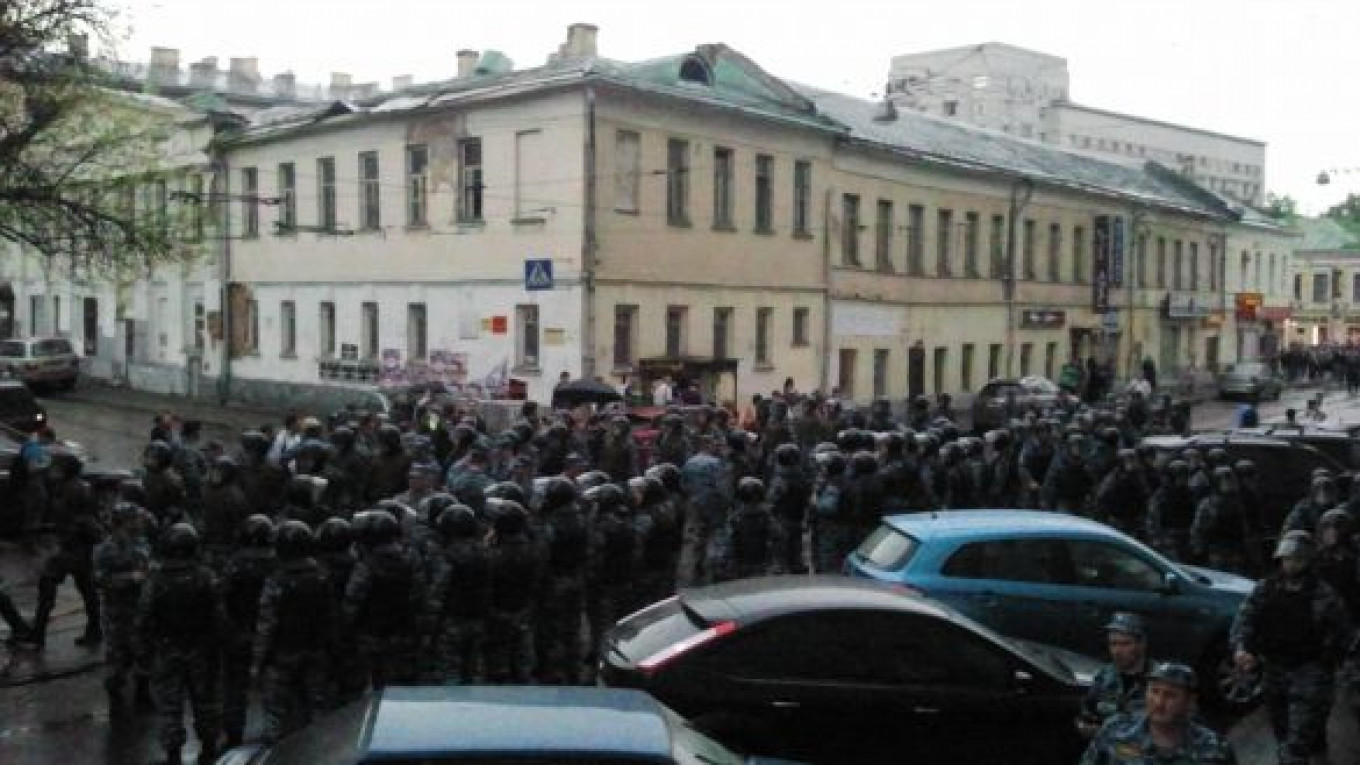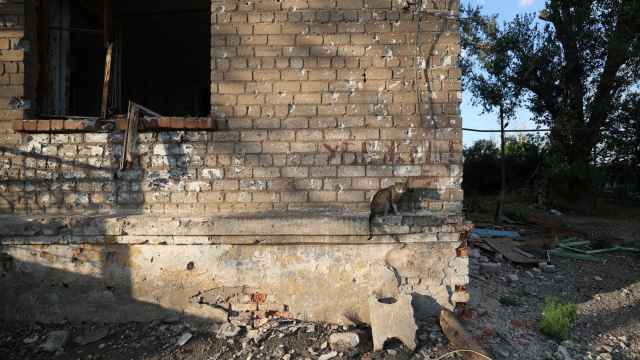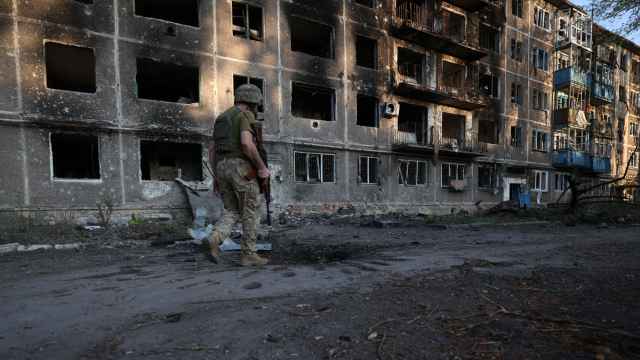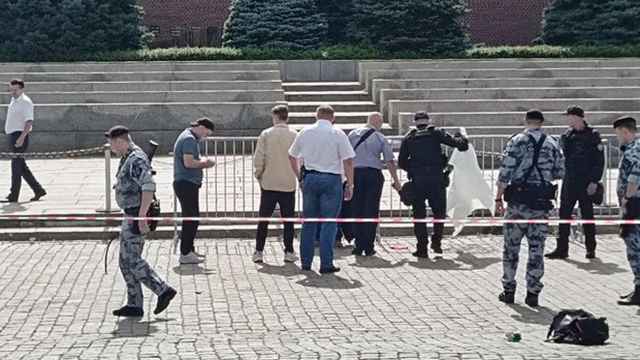In a blow to the anti-government rallies, the State Duma is moving to introduce exorbitant penalties for protesters who defy the authorities.
Courts could slap up to 900,000 rubles ($30,000) in fines on regular protesters — 900 times more than now — under a bill sponsored by the pro-government United Russia faction.
Organizers would face up to 1 million rubles in fines — 500 times more than now.
Both groups would be punishable by up to 200 hours of community service, a complete novelty for this type of offense.
Sure to pass, the measure threatens to undercut the outpouring of disapproval for President Vladimir Putin: the cause for people taking to the street.
The Duma is scheduled to consider the bill May 18, a senior lawmaker said Friday.
United Russia Deputy Alexander Sidyakin, the lead sponsor of the bill, submitted it to the Duma on Thursday.
The legislation predictably enraged opposition leaders.
"He must understand that he wants to bankrupt all the people that disagree with the authorities," said Boris Nemtsov, a key person behind the rallies, referring to Sidyakin. "His goal is to … strip them of their apartments and property. This is the right way — for North Korea."
The bill comes after a fierce standoff between riot police and demonstrators on May 6, the eve of Putin's inauguration for his third presidential term. The skirmishes erupted after protesters numbering 70,000 people, according to the organizers, ran into police cordons on their government-approved route.
Police, who counted only 8,000 protesters, detained hundreds of people. Both, demonstrators and police, suffered injuries.
Urged by opposition activist Alexei Navalny, hundreds of people have since staged an indefinite protest by walking — and camping out — in central Moscow wearing white ribbons, the symbol of the anti-Putin movement.
United Russia, which holds more than half the seats in the Duma, said Friday that it would support the bill.
"Disorder is unacceptable on the streets of Russian cities," faction leader Andrei Vorobyov said. "Nobody can hamper the normal life of citizens."
In a memo attached to the bill, the sponsors complained that rallies prevent others from reaching their apartments, work, educational establishments and recreational spaces. Protests also damage flower beds, worsens sanitary and epidemiological conditions, stand in the way of public transportation and block passage for passersby.
The current fines are "negligible" and can't prevent violations, the memo said.
Sidyakin told reporters that the protest camp at the small Chistiye Prudy park obstructs the way for mothers with baby carriages and young couples. He said the protesters litter, break trees and trample the lawns.
Lawns do look ragged, but reports from the scene didn't mention any broken trees or impediments for strollers. The protesters gather their litter and imposed a ban on consuming alcohol and throwing cigarette butts on the ground. Volunteers maintain order.
The other Duma factions, the Communist Party, A Just Russia and the Liberal Democratic Party, said they would vote against the bill.
"The most recent events in Moscow have shown that one can become an offender without violating anything," said Duma First Deputy Speaker Ivan Melnikov, a Communist, Interfax reported. He was apparently referring to the May 6 rally.
Duma Deputy Speaker Nikolai Levichev, Just Russia member, also bristled at the bill.
"Against the background of the events that are unfolding on the street today, this proposal appears provocative," he said.
The bill targets the authorities, too. It envisages the biggest fine — of up to 1.5 million rubles — for officials who impede protests that are "conducted in accordance with law."
A Message from The Moscow Times:
Dear readers,
We are facing unprecedented challenges. Russia's Prosecutor General's Office has designated The Moscow Times as an "undesirable" organization, criminalizing our work and putting our staff at risk of prosecution. This follows our earlier unjust labeling as a "foreign agent."
These actions are direct attempts to silence independent journalism in Russia. The authorities claim our work "discredits the decisions of the Russian leadership." We see things differently: we strive to provide accurate, unbiased reporting on Russia.
We, the journalists of The Moscow Times, refuse to be silenced. But to continue our work, we need your help.
Your support, no matter how small, makes a world of difference. If you can, please support us monthly starting from just $2. It's quick to set up, and every contribution makes a significant impact.
By supporting The Moscow Times, you're defending open, independent journalism in the face of repression. Thank you for standing with us.
Remind me later.







